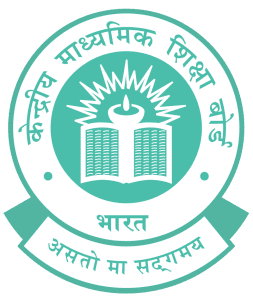
The Indian Central Board of Secondary Education (CBSE) is one of India’s most widely adopted and recognized education boards, with a curriculum designed to provide a strong foundation in academics, life skills, and holistic development. CBSE emphasizes academic rigor, critical thinking, analytical skills, and preparation for national-level competitive exams. The curriculum is structured from primary school through secondary school and up to senior secondary school (grades 11 and 12).
1. Structure of the CBSE Curriculum
The CBSE curriculum is organized by key stages:
- Primary School (Grades 1-5): Foundational literacy and numeracy, introduction to science and social studies, values, and creativity.
- Middle School (Grades 6-8): Deeper focus on core subjects, development of analytical skills, and exposure to co-curricular subjects.
- Secondary School (Grades 9-10): Core academic foundation in preparation for board exams (Class 10 exams), with a focus on subjects aligned to future career paths.
- Senior Secondary School (Grades 11-12): Specialization in streams (Science, Commerce, or Humanities) leading to the Class 12 board exams, which play a critical role in college admissions.
2. Key Subjects in the CBSE Curriculum
The CBSE curriculum covers core subjects, languages, and co-curricular areas designed to provide a balanced education.
Primary School Curriculum (Grades 1-5)
- Core Subjects:
- English: Basic reading, writing, vocabulary, and grammar.
- Mathematics: Number sense, operations, basic geometry, measurement, and data handling.
- Environmental Studies (EVS): Integration of basic science, social studies, and environmental awareness.
- Hindi: Vocabulary, grammar, reading, and writing.
- Art, Physical Education, and Value Education: Encouraging creativity, physical fitness, and social values.
- Learning Focus: Developing foundational skills, curiosity, and values through an engaging and age-appropriate approach.
Middle School Curriculum (Grades 6-8)
Core Subjects:
- English and Hindi: Advanced grammar, reading comprehension, creative writing, and literature.
- Mathematics: Algebra, geometry, fractions, decimals, basic statistics, and problem-solving.
- Science: General science (including biology, chemistry, physics concepts), experimentation, and scientific inquiry.
- Social Science: Indian and world history, geography, civics, and introduction to economics.
- Sanskrit or Third Language: Optional language (Sanskrit or regional languages) to build multilingual skills.
Additional Areas: Art and Music, Physical Education, Life Skills, and Computer Science.
Learning Focus: Building critical thinking, analytical skills, and a deeper understanding of core subjects. Emphasis on project-based learning, teamwork, and basic research skills.
Secondary School Curriculum (Grades 9-10)
CBSE’s curriculum in Grades 9 and 10 is structured to prepare students for the All India Secondary School Examination (AISSE) or Class 10 Board Exam.
Core Subjects:
- English Language and Literature: Analysis of novels, poetry, and prose; grammar; writing essays, reports, and letters.
- Mathematics: Linear equations, quadratic equations, trigonometry, coordinate geometry, statistics, probability.
- Science: Divided into Physics (motion, force, energy, electricity), Chemistry (atoms, chemical reactions, periodic table), and Biology (life processes, reproduction, genetics).
- Social Science: History (Indian freedom movement, world wars), Geography (physical and human geography, resources), Political Science (democracy, government structures), Economics (basic economic concepts, development).
- Hindi or Sanskrit: Advanced language studies including grammar, literature, comprehension, and writing.
Assessment: Class 10 Board Exams include assessments in these subjects, as well as internal assessments and projects in subjects like Art, Computer Science, and Physical Education.
Learning Focus: Emphasis on analytical skills, subject proficiency, time management, and exam preparation for Class 10 board exams, which influence future academic pathways.
Senior Secondary Curriculum (Grades 11-12)
In Grades 11 and 12, students select a stream: Science, Commerce, or Humanities, based on their interests and career goals. The curriculum is designed to prepare students for the All India Senior School Certificate Examination (AISSCE) or Class 12 Board Exams.
Core Streams and Subjects:
1. Science Stream:
- Physics: Mechanics, electricity, magnetism, thermodynamics, optics, modern physics.
- Chemistry: Organic, inorganic, and physical chemistry, chemical reactions, periodicity, and lab work.
- Mathematics or Biology: Mathematics (calculus, algebra, vectors, statistics) or Biology (human physiology, genetics, evolution, ecology).
- Optional Subjects: Computer Science, Biotechnology, Psychology, Physical Education.
- English: Compulsory for all streams, focusing on advanced comprehension, essay writing, and language skills.
2. Commerce Stream:
- Accountancy: Financial accounting, business transactions, ledger accounts, income statements, and balance sheets.
- Business Studies: Business environment, management principles, marketing, finance, organizational behavior.
- Economics: Microeconomics (consumer behavior, market forms) and macroeconomics (national income, money, banking, government budgets).
- Mathematics or Entrepreneurship: Business mathematics, statistics, or entrepreneurship as an optional subject.
- Optional Subjects: Informatics Practices, Physical Education, Psychology.
3. Humanities Stream:
- History: Ancient, medieval, and modern Indian history, world history, cultural heritage.
- Geography: Physical and human geography, cartography, resource management, environmental studies.
- Political Science: Indian politics, international relations, global organizations, political theories.
- Psychology, Sociology, Economics, or Fine Arts: Options that focus on human behavior, society, culture, and creative expression.
- Optional Subjects: Home Science, Physical Education, Philosophy.
Assessment: Class 12 Board Exams are crucial for university admissions and career paths. Students take exams in core subjects and optional subjects chosen within their stream.
Learning Focus: Subject mastery, independent research, practical applications, and college entrance exam preparation.
3. Assessment and Evaluation in the CBSE Curriculum
CBSE employs Continuous and Comprehensive Evaluation (CCE) up to Grade 10, using formative (ongoing) and summative (end-of-term) assessments to evaluate students’ academic progress, life skills, and co-curricular performance.
- Formative Assessments (FA): Regular quizzes, assignments, projects, and oral tests.
- Summative Assessments (SA): Midterm and final exams at the end of each term.
- Board Exams: Class 10 (AISSE) and Class 12 (AISSCE) exams are national-level exams that influence academic and career pathways.
In Class 12, the AISSCE results determine university admission eligibility in India, especially for competitive programs in fields like engineering, medicine, law, and commerce.
4. Key Strengths of the CBSE Curriculum
- Rigorous Academic Foundation: CBSE’s strong focus on science and mathematics provides students with a robust foundation for competitive exams, especially in STEM fields.
- Skill Development and Competency-Based Learning: Recent updates emphasize critical thinking, problem-solving, and real-world applications to prepare students for global challenges.
- Flexibility and Adaptability: The curriculum supports school-specific adaptations, and CBSE has introduced skill-based subjects like Artificial Intelligence, Financial Markets, and Entrepreneurship.
- Promotion of Bilingualism: With English as a primary medium and Hindi (or another language) as a second language, CBSE encourages multilingual proficiency.
- Focus on Technology and Innovation: CBSE’s curriculum includes ICT (Information and Communication Technology) and coding, promoting digital literacy.
5. Co-Curricular and Life Skills in CBSE
CBSE encourages co-curricular activities and life skills education alongside academics, fostering well-rounded development. These include:
- Physical Education: Physical fitness, sportsmanship, and teamwork.
- Health and Wellness Education: Nutrition, personal safety, and well-being.
- Value Education: Social and moral values, community service, empathy, and respect.
- Work Education and Art Education: Vocational skills, creativity, and appreciation of cultural heritage.







